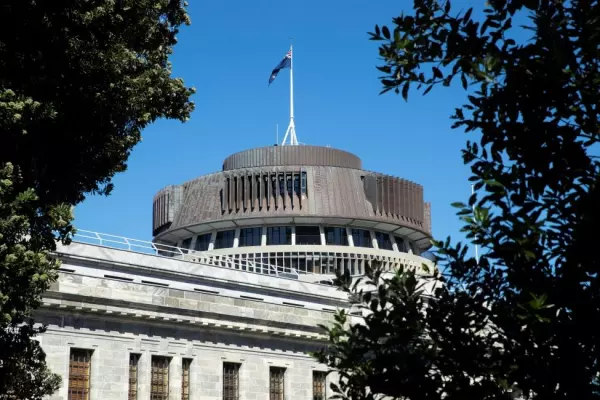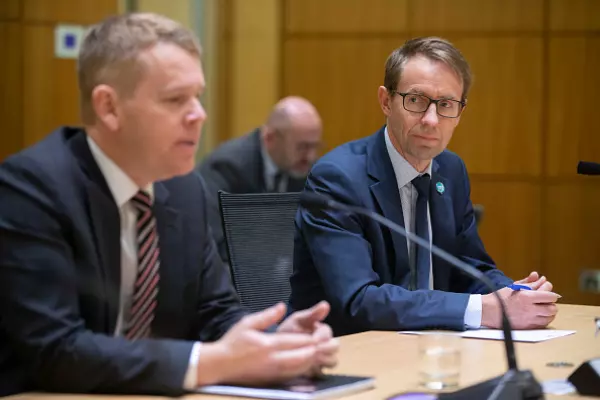Workers in the public service appear to be divided on whether they have enough time to devote to the important work of future-proofing the sector.
The duty of stewardship is one of the core principles of the public service, put in place to ensure future challenges get enough attention.
But stewardship is a complex topic.
The other four statutory principles are described in the Public Service Act with fewer than 15 words each, but stewardship requires five separate bullet points.
These make chief executives responsible for:
- The public service's people and long-term capability.
- Maintaining institutional knowledge and information.
- Systems and processes.
- Assets.
- The legislation they administer.
Individuals
In answers from 771 public servants in the “Working in the Public Service” survey run for BusinessDesk and the Institute for Public Administration NZ by research agency Perceptive, only 45% of respondents agreed with the statement: "In my job, I can usually devote enough time to longer-term matters rather than just short-term issues."
That left more than half of respondents (52%) who said they don't have enough time to meet their stewardship responsibilities. The remaining 4% were 'Don't know or Can't say' responses.
This split largely holds when responses are broken down by seniority. Even at tier 1 and 2 – the very highest levels of the public sector, where stewardship might be expected to play a more prominent role – 45% of respondents said they didn't have enough time for longer-term matters.
Agency level
When they were asked if their organisation manages to find the right balance between short and long-term priorities, the response was slightly more positive – 53% agreed with a statement to this effect.
That still leaves 39% of workers in the public sector who said not enough is being done to future-proof the organisation.
Once again, when responses to this question were broken down by seniority, the share who said their agency was not fulfilling its stewardship role remained consistent at about 40% at most levels.
One respondent suggested pressure to deliver on short-term objectives had an adverse impact on stewardship within their agency.
"Time is a big factor in a lot of these things happening or not happening – constantly rushed advice to meet tight, rushed deadlines [which] ultimately negatively affect how our policies and laws impact citizens in the long term," they wrote.
Another suggested that "much of the government is an ad-hocracy that is entirely dependent on the institutional memory that is held in the heads of certain individuals".
Better than it was?
The research also asked whether agencies are better at stewardship now than they were in the past.
Only 28% agreed that they were and 34% disagreed. The remaining 38% were 'Don't know or Can't say' responses.
"There is a culture of avoiding responsibility for difficult issues," wrote one survey respondent, "then when it can no longer be avoided, trying to pin blame elsewhere".
"This means organisations don't actually learn from experiences and the same problems recur." Efforts to fix the recurring problem lead to staff thinking: "This again?"
Of those with 10 or more years' experience in the public service, 36% disagreed that stewardship was better now than it used to be, compared to 32% who agreed.
There was a suggestion from a respondent that the electoral cycle and its impact on political neutrality was a hindrance to long-term thinking.
"The influence of political considerations in the policy cycle suggests that extending the electoral term would generate significant efficiencies in the work of central government by supporting a greater focus on out-years thinking and work."
Others were concerned about the quality of information technology.
Said one respondent: "The public service is overwhelmed by poorly designed technology systems and out-of-control information. We need to invest much more in our digital and data skills."
Others worry about personnel caps and the pay freeze of the past couple of years affecting how attractive the public sector is as a place to work.
Others seek a greater degree of engagement between agencies at levels below the chief executives, who regularly meet together as a group.
"Considering that each department/agency is the most likely source of recruiting to other state sectors, we should do more to improve connectivity."
Many, however, are happy or proud of where they work.
"Great work culture," wrote one respondent. "Teams are professional and always think constructively."
Another said they admired "the core ethos" of the public service that "attracted me and most people I know", and the "dedication and integrity" with which public servants responded to covid-19.
"I am disturbed, however," wrote this respondent, "at how little the public service – my own agency included – has changed to adapt to the fundamentally different challenges the pandemic has either caused or catalysed.
"While I acknowledge we are all very tired and care is needed not to tip people over the edge with unnecessary or precipitate restructuring, I believe strongly the public service would respond positively to the challenge of reaffirming and reorienting its mission."
Like many other commenters, this public servant was worried that the growing use of "very expensive" external consultants to give policy development advice was a "symptom of tinkering incrementalism or 'mole-whacking' rather than an alignment of resource to purpose".
The respondent said: "These costs will compound, like interest on debt, until they are rationalised, and the deficit will be evident in the good that is not being done."















